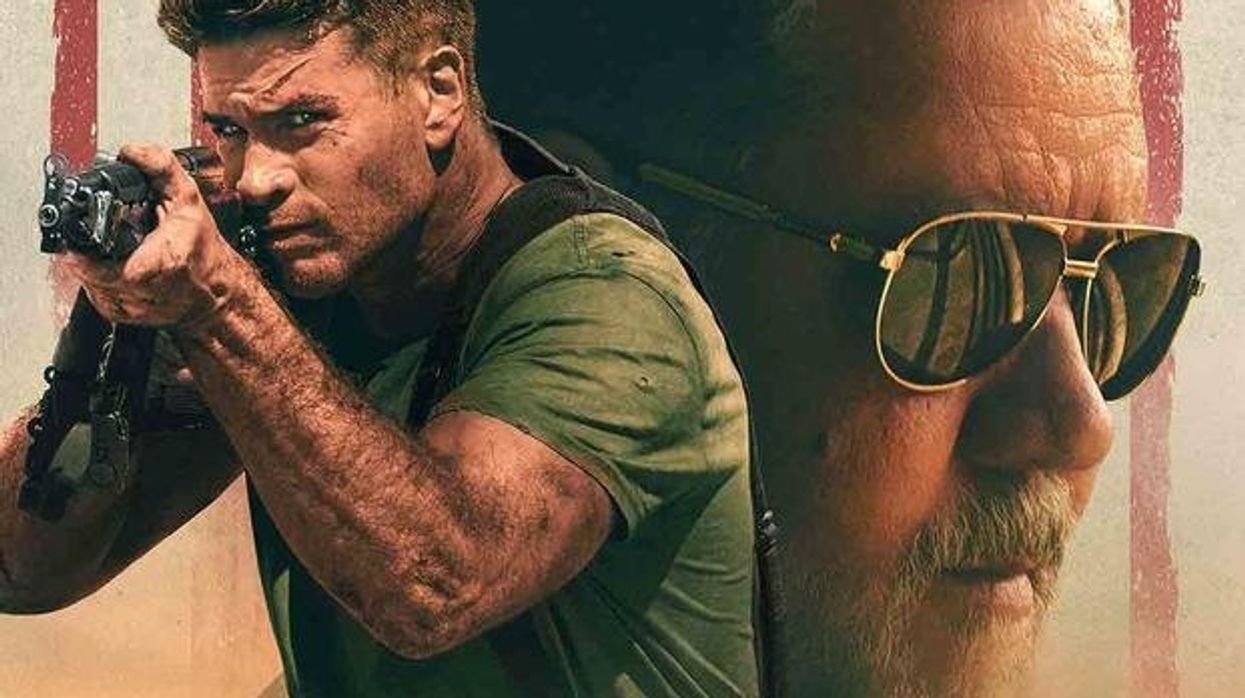
The Avenue

Co-writer and producer David Frigerio on bringing a JTAC's fight to the big screen.
David Frigerio, the co-writer and producer of “Land of Bad,” had a simple directive while making the film: Create a “non-political, straightforward, kick-ass action film.”
And with to the film overperforming at the box office, mission accomplished.
“Land of Bad” treats American soldiers with the respect they’ve earned but doesn’t idolize them. It’s not a rah-rah slice of jingo pie.
“Land of Bad” had little marketing muscle behind it, but it cracked the box office top 10 in its opening week on just 1,000-plus screens. That’s roughly a third to a fourth of what most wide-release movies receive.
“It’s the little engine that could,” Frigerio tells Align, adding that the movie had the third-highest per-screen average in its debut.
Liam Hemsworth stars as a raw joint terminal attack controller fighting for his life after a rescue mission goes awry in southwest Philippines. The film showcases the latest military techniques, including a drone steered by Oscar winner Russell Crowe as Reaper, the film’s grouchiest character.
No woke lectures. Just four soldiers bravely going behind enemy lines to retrieve an asset (along with some good-natured ribbing aimed at vegans).
The inspiration behind “Land of Bad” dates back to 2013. Frigerio and his producing partners became fascinated by the work JTACs do in combat situations, coordinating drone strikes and the proverbial eyes in the sky to complete dangerous missions.
Frigerio and his team worked extensively with military veterans to develop the characters and fact-check story elements, a collaboration that began early in the filmmaking process.
A real-life JTAC reached out to Frigerio after word leaked about the screenplay, starting an extended exchange between storytellers and military veterans. The screenwriter drove out to Fort Irwin military base the next day and spent three days “as a fly on the wall,” learning how to “blow stuff up,” as he calls it, at a military base.
The veterans shared their war stories and the traumas they experienced.
“They’re still salt-of-the-earth guys. That surprised me,” he says. “Getting their stories helped with the tone of the film.”
Having soldiers on speed-dial while writing the script ensured its authenticity. It also flavored the film’s cheeky sense of humor and brotherhood. Hemsworth co-stars with his brother, Luke Hemsworth, plus “This Is Us” alum Milo Ventimiglia and Ricky Whittle.
Frigerio peppers the conversation with the word “cool” about both the film and the Queensland, Australia, shoot. The team had roughly $20 million to work with, a solid sum for an indie film but a fraction of what studios dole out for their projects.
Having an Oscar winner on board? Priceless.
Crowe stepped onto the set and said he saw his character, nicknamed Reaper, as “Hawkeye Pierce from ‘M*A*S*H*.’ I got chills,” Frigerio says. The actor helped rewrite scenes on the fly, improved lines that made the final cut, and fully committed to the project.
“He’s a master,” the producer says.
“Land of Bad” treats American soldiers with the respect they’ve earned but doesn’t idolize them. It’s not a rah-rah slice of jingo pie.
“We wanted to pay as much respect to the military as possible,” Frigerio says. That also meant honest depictions of frustrating military bureaucracy as well as clashing egos.
It wasn’t long ago that Hollywood cranked out one anti-military drama after the other. “Lions for Lambs,” “Redacted,” “Rendition,” and “Green Zone” cast a withering light on soldiers, the Bush administration’s War on Terror, or both.
They all bombed at the box office.
Since then, the industry has shown more empathy for U.S. soldiers, from the Oscar-nominated “American Sniper” (2014) and “Lone Survivor” (2013) to the underrated “Thank You for Your Service”(2017) starring Miles Teller as a veteran suffering from PTSD.
Frigerio acknowledges a distinct change in movies made about the U.S. military over that span, and “Land of Bad” does nothing to interrupt that trend. Nor did the filmmakers receive any studio notes or imperatives to steer the film in one direction or another.
“It’s the film we wrote 11 years ago. We were always tinkering with it. … This is our movie,” he says. “We weren’t influenced by any corporation or studio.”